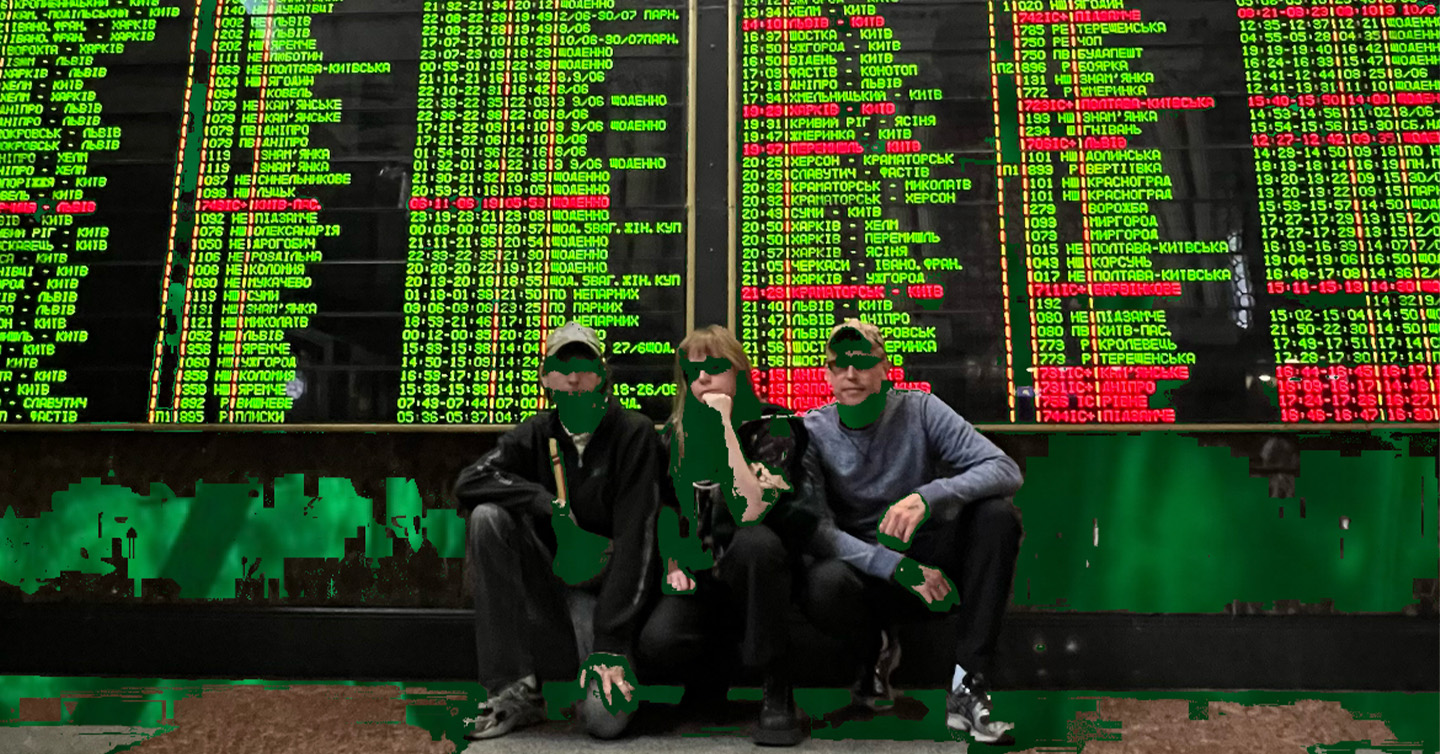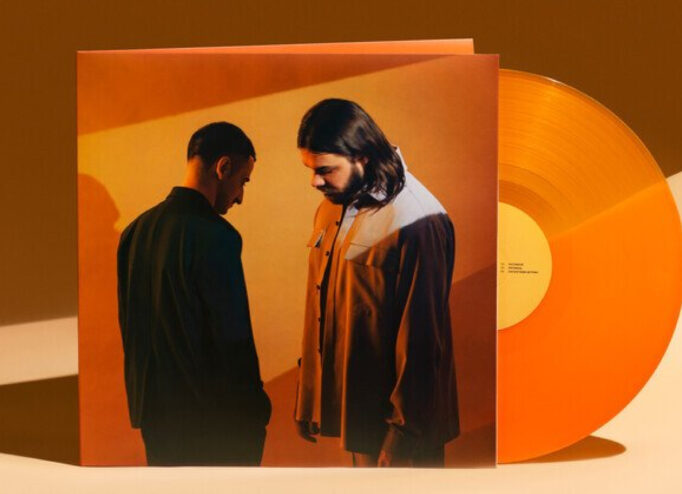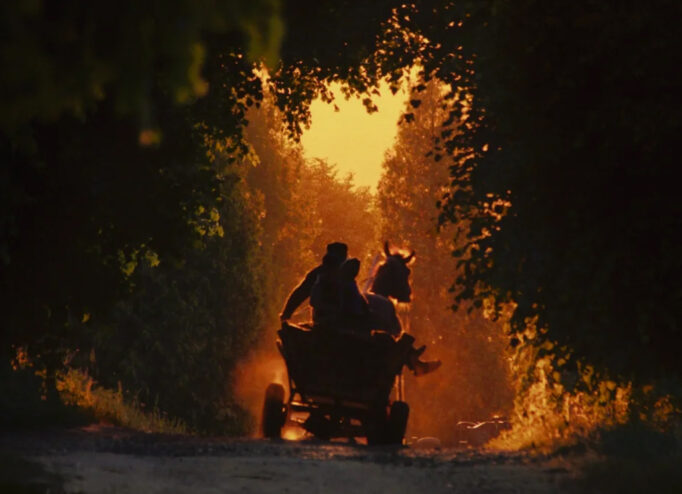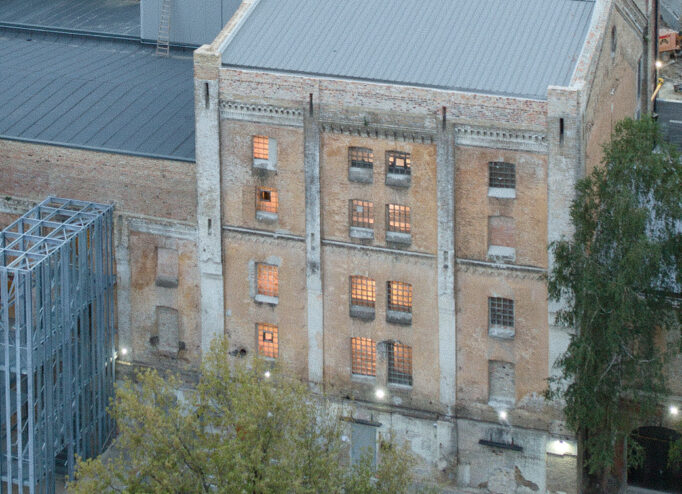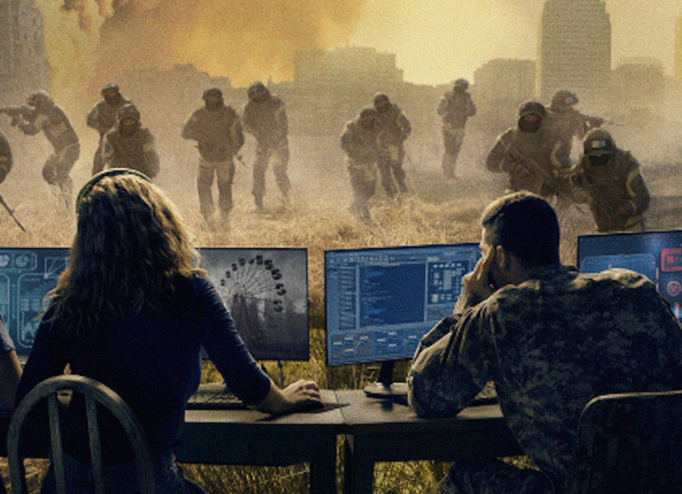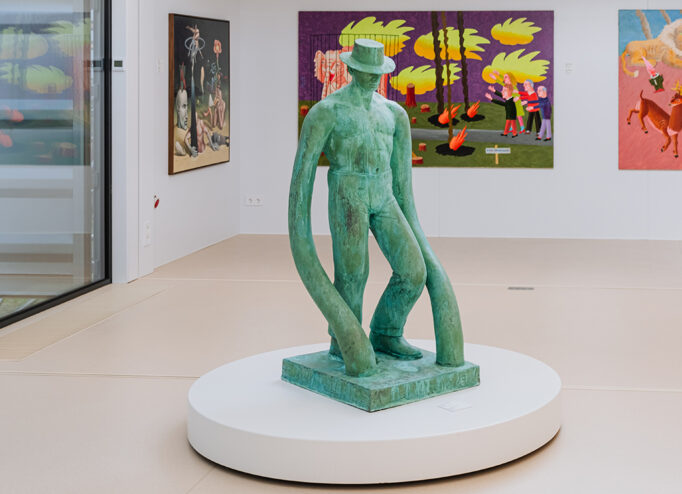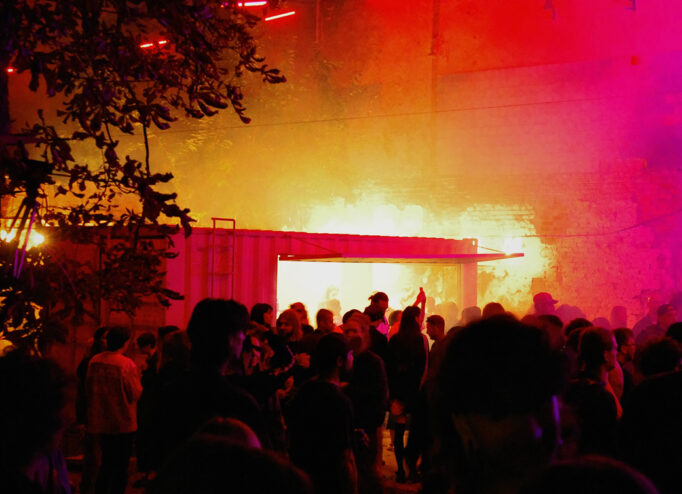Three artists from Copenhagen — Mama Snake, DJ TOOL, and Ezy — are key figures in Europe’s independent club scene. They believe music isn’t just entertainment; it’s political, too. They are committed to supporting local communities and creating a non-toxic, inclusive environment. While being residents of the iconic Berlin-based collective and queer party series MALA JUNTA, they also contribute to other projects: Mama Snake co-founded the label Amniote Editions, and DJ TOOL is a key player in the Fast Forward Productions team.
In June, they headed to Kyiv to perform at club ∄, but their trip was about more than just the music. They kicked off a fundraiser for Ukraine in partnership with the local foundation AIDx10, which also supports Ukrainian artists serving on the front lines. The fundraiser is still open, and they shared their experiences in Ukraine along the way. The DJs met with local collectives, joined the educational project Mirage Camp, visited Bucha and Borodyanka, and even witnessed a massive missile attack.
During the trip, Mama Snake kept a diary, sharing her thoughts and experiences. DTF Magazine and AIDx10 are excited to share these entries, along with photos the artists took during their visit.
• June 8th
Jojo (DJ TOOL), Victor (EZY), and I meet at Warsaw airport, coming straight from gigs in Copenhagen, Prague, and London, to embark on the long train ride to Kyiv. As the airspace is terrorized by r*zzian missiles and drones, traveling by train or car is the only way in and out of Ukraine since the full-scale invasion started on February 24th, 2022.
It’s a long journey where we pass by several destroyed cities and trenches along the train tracks, and the passport checks at the border are very extensive. Not all the trains are direct, and we have to change from a regular train to a sleeping train in a small Polish town close to the border. We enter the small cabin with bunk beds that will be our “home” for the next 13 hours, sleep a bit, and can barely stay awake when the border control does the passport checks. We enter Ukraine, and the usual lack of sleep from touring comes in handy. We pass out in our little compartment and wake up as we enter Kyiv
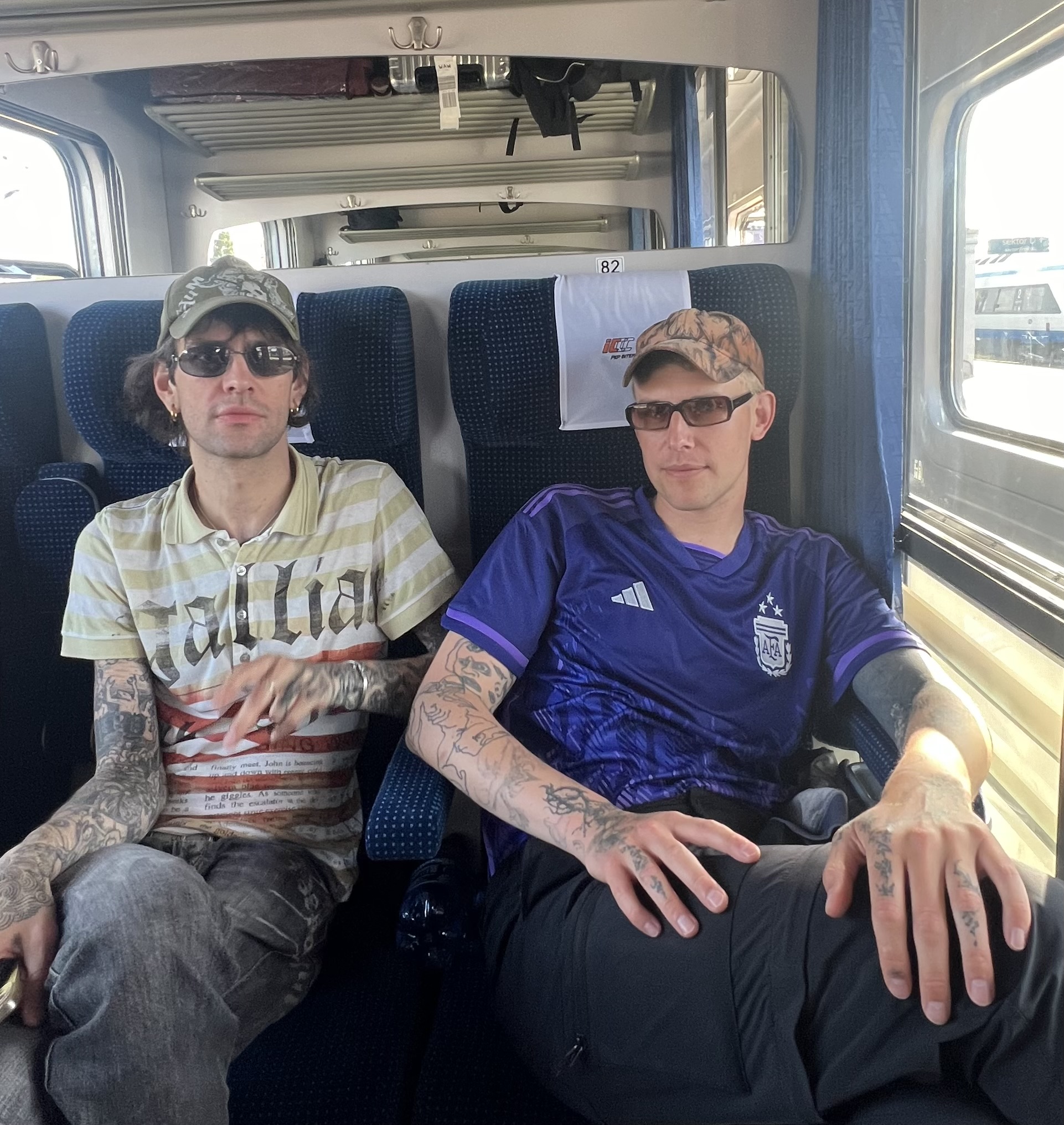
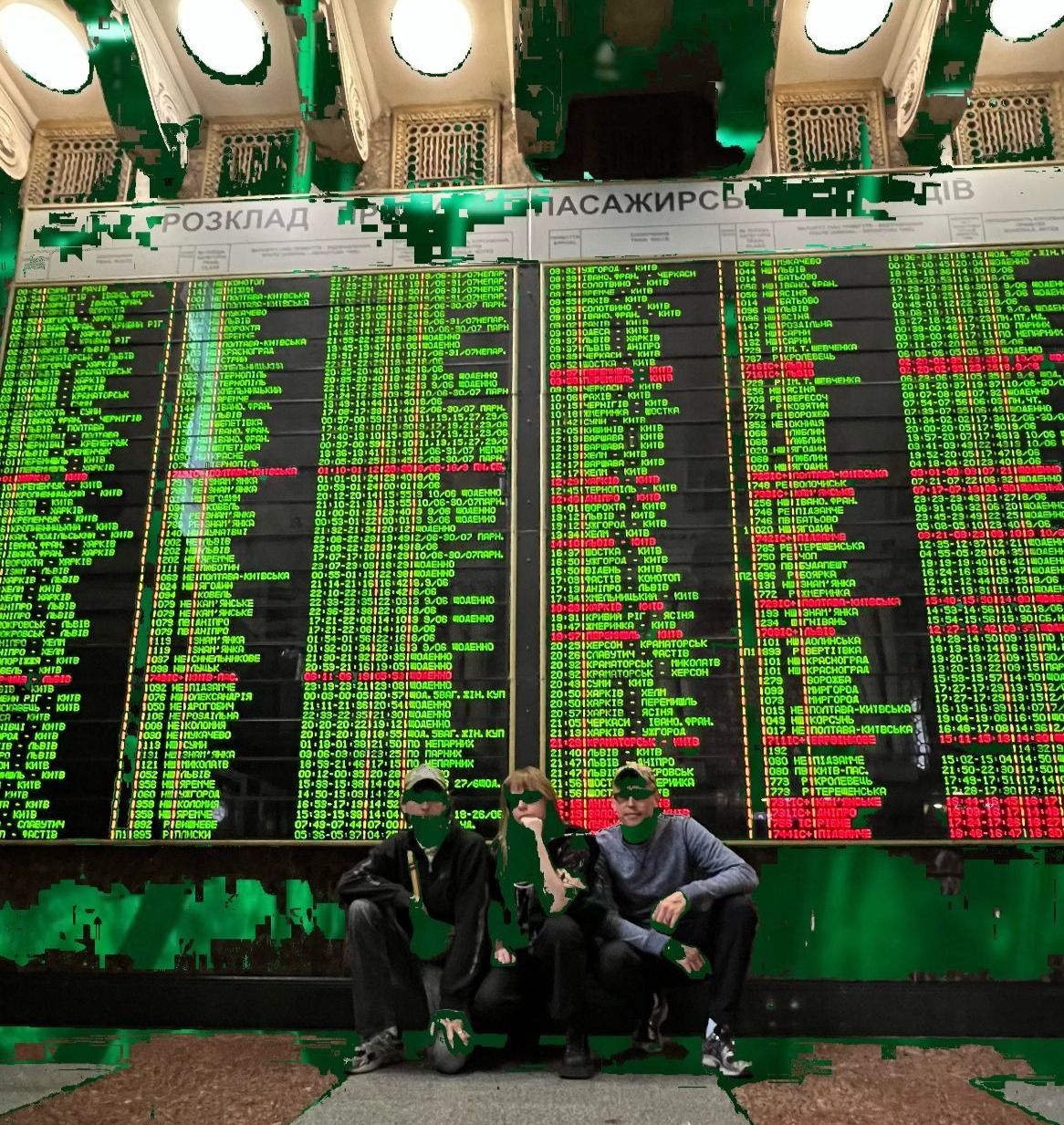
• June 9th
We arrived in Kyiv after 18+ hours on the train. We felt lucky that we were so tired that we slept the whole way. This is standard travel for Ukrainians going to and from their country.
We drop our stuff at the hotel, shower, and then head straight to K41, one of the many clubs and venues still operating with daytime events as there is a curfew every day from 00:00-05:00.
Art, music, and culture, in general, are still blooming in Ukraine, keeping the already strong identity alive. We were met with the most intense warmth and gratitude that I’ve ever experienced in my life and had probably the most important dance floor experience you can imagine.
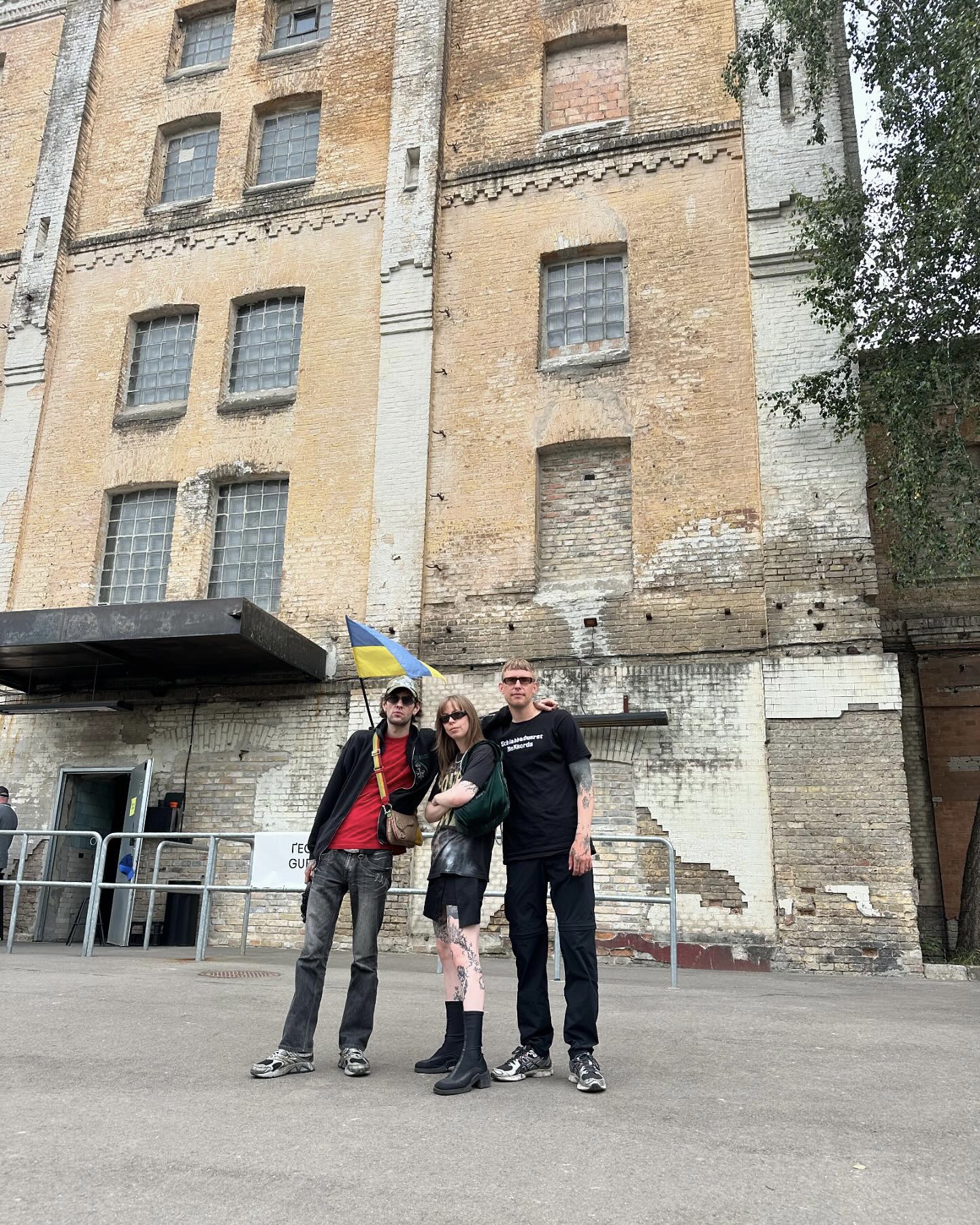
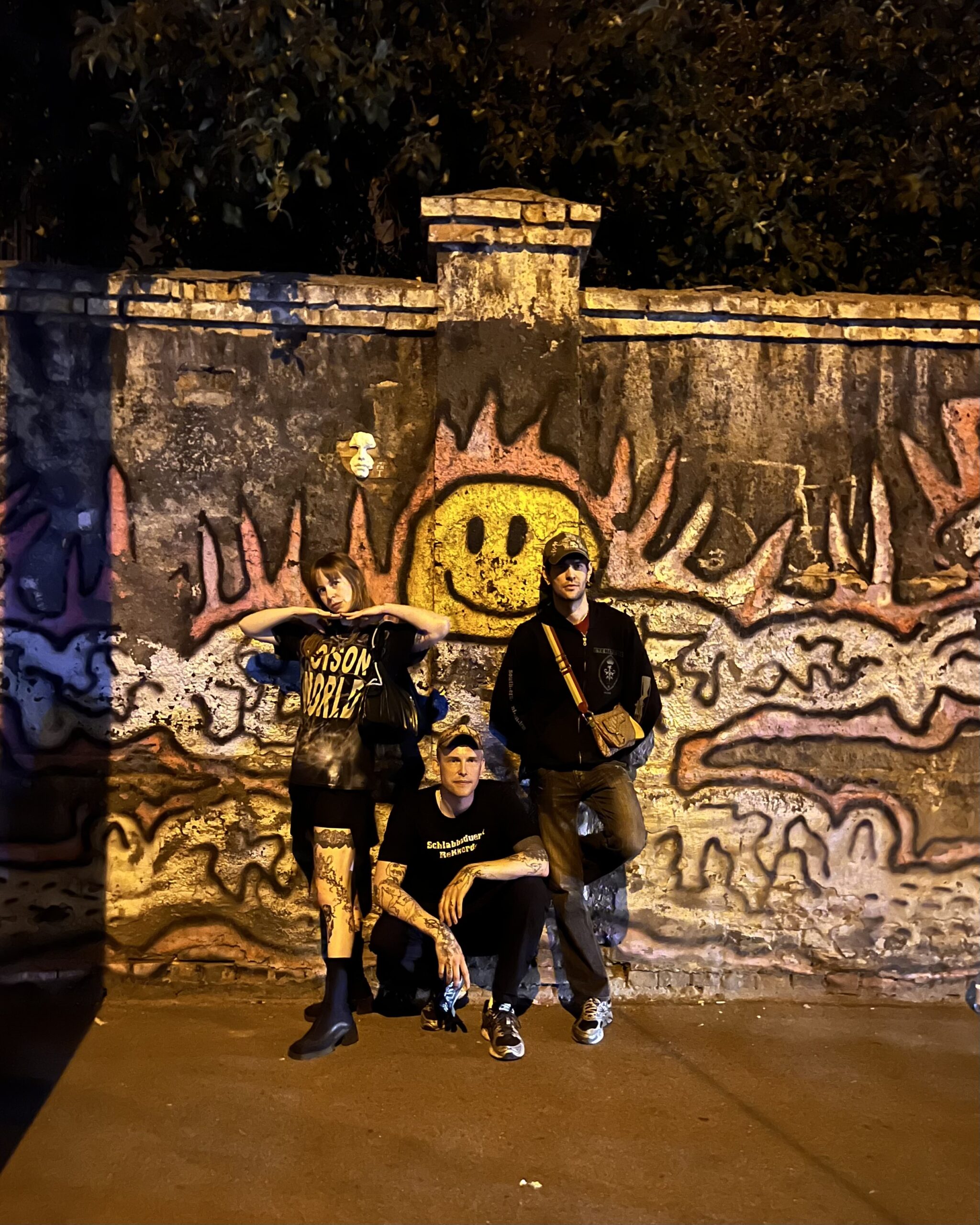
The event ends at 23:00 to give people enough time to be back before the curfew. I leave the club feeling completely overwhelmed and humbled by the experience. The break from reality that a dance floor can offer feels really meaningful and necessary here. I’m very impressed by the Ukrainian mentality and resilience.
We spend the rest of the night catching up with friends, and when the curfew ends, we head home and pass out with full hearts.
• June 10th
I woke up from what felt like a surreal dream.
Jojo and I walk around Kyiv, a city I have come to know and cherish from many visits before the war, and I have spent a lot of time in, so it is really good to be back. The city looks the same but feels different. Monuments and statues are covered in protection from airstrikes, with one of them being overgrown with plants, a sign of how long the invasion has been going on. Major squares are filled with memorials for the lives lost in battle and r*zzian military equipment destroyed by the Ukrainian army as a reminder that victory will happen.
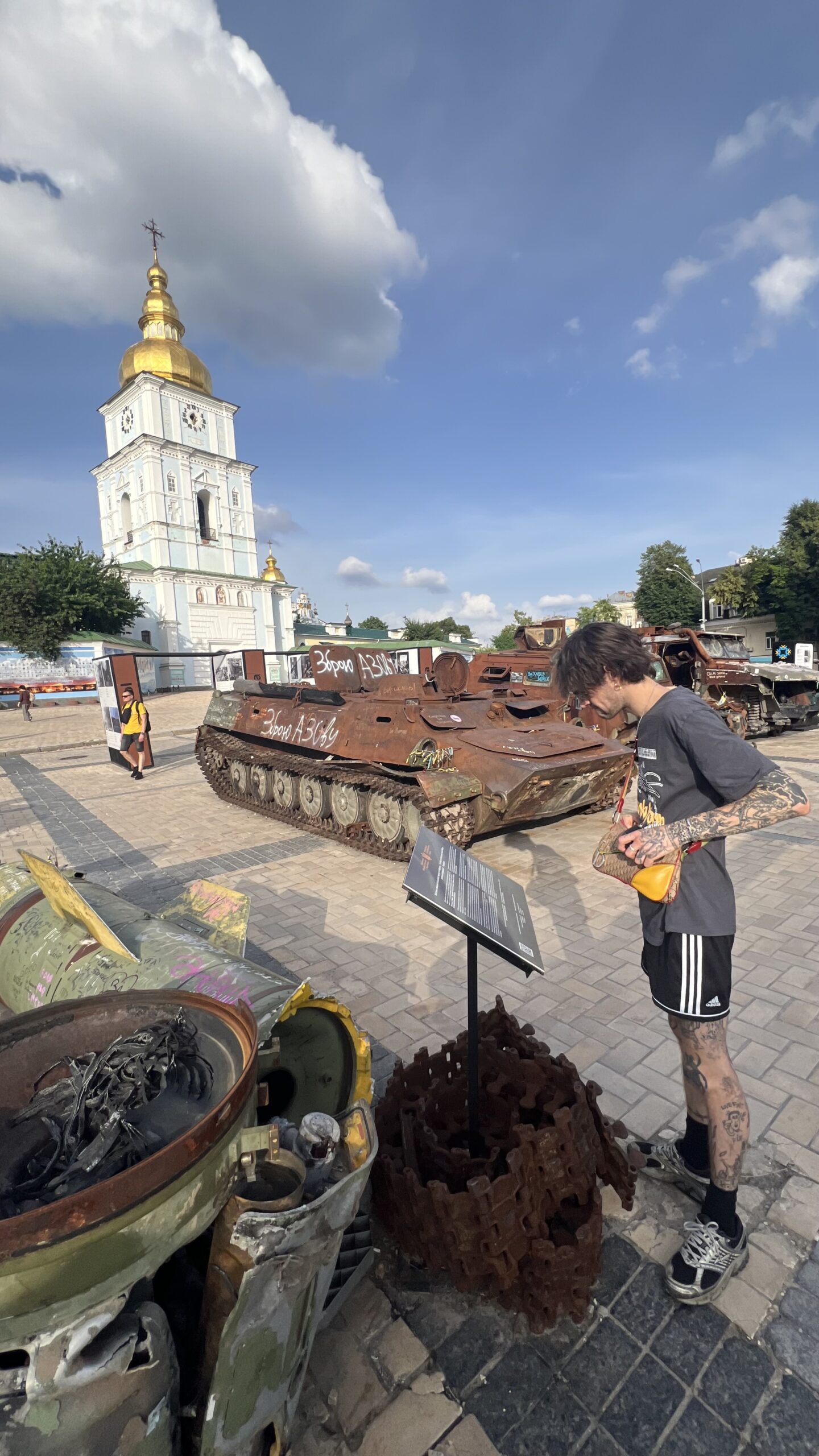
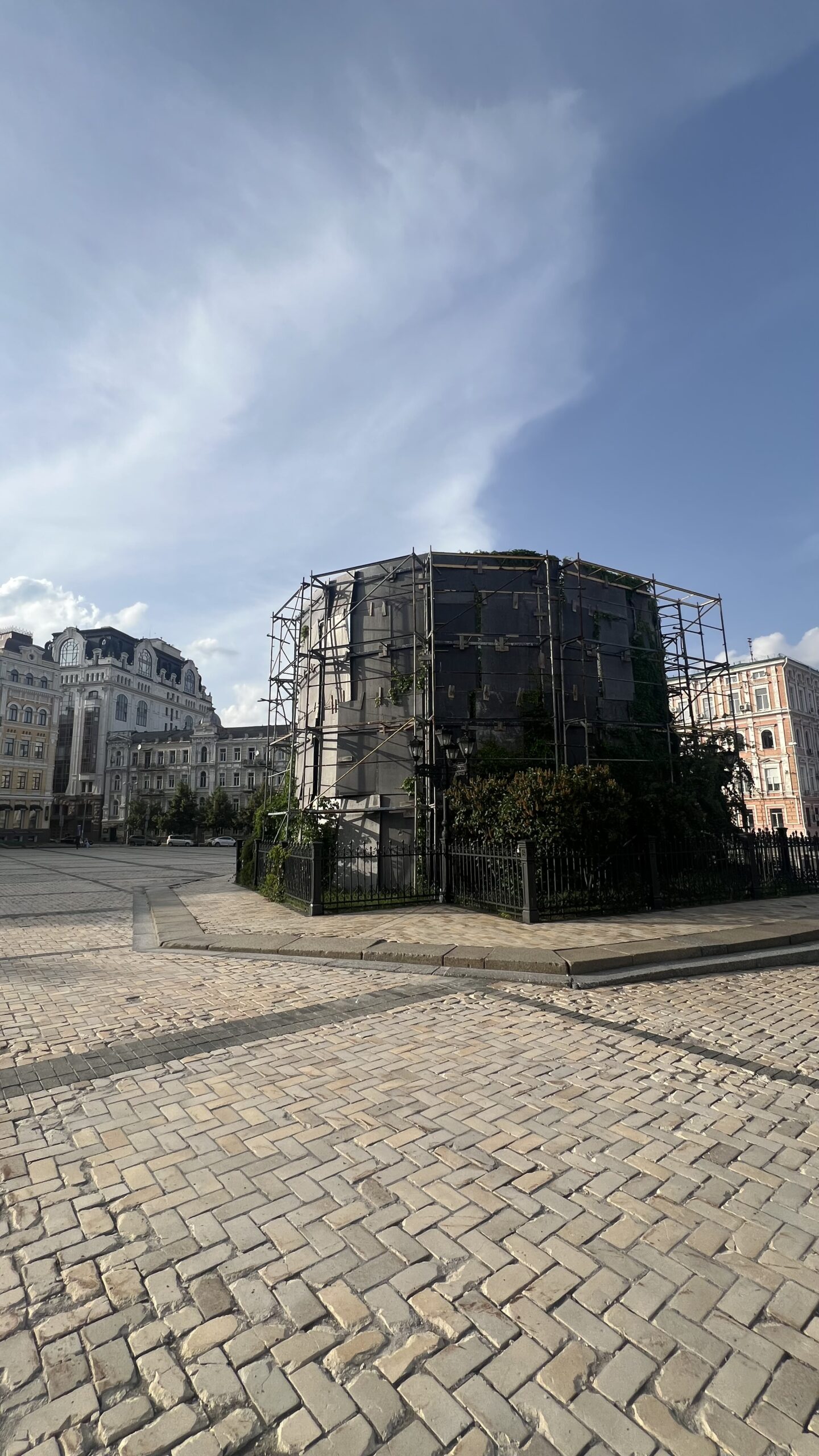
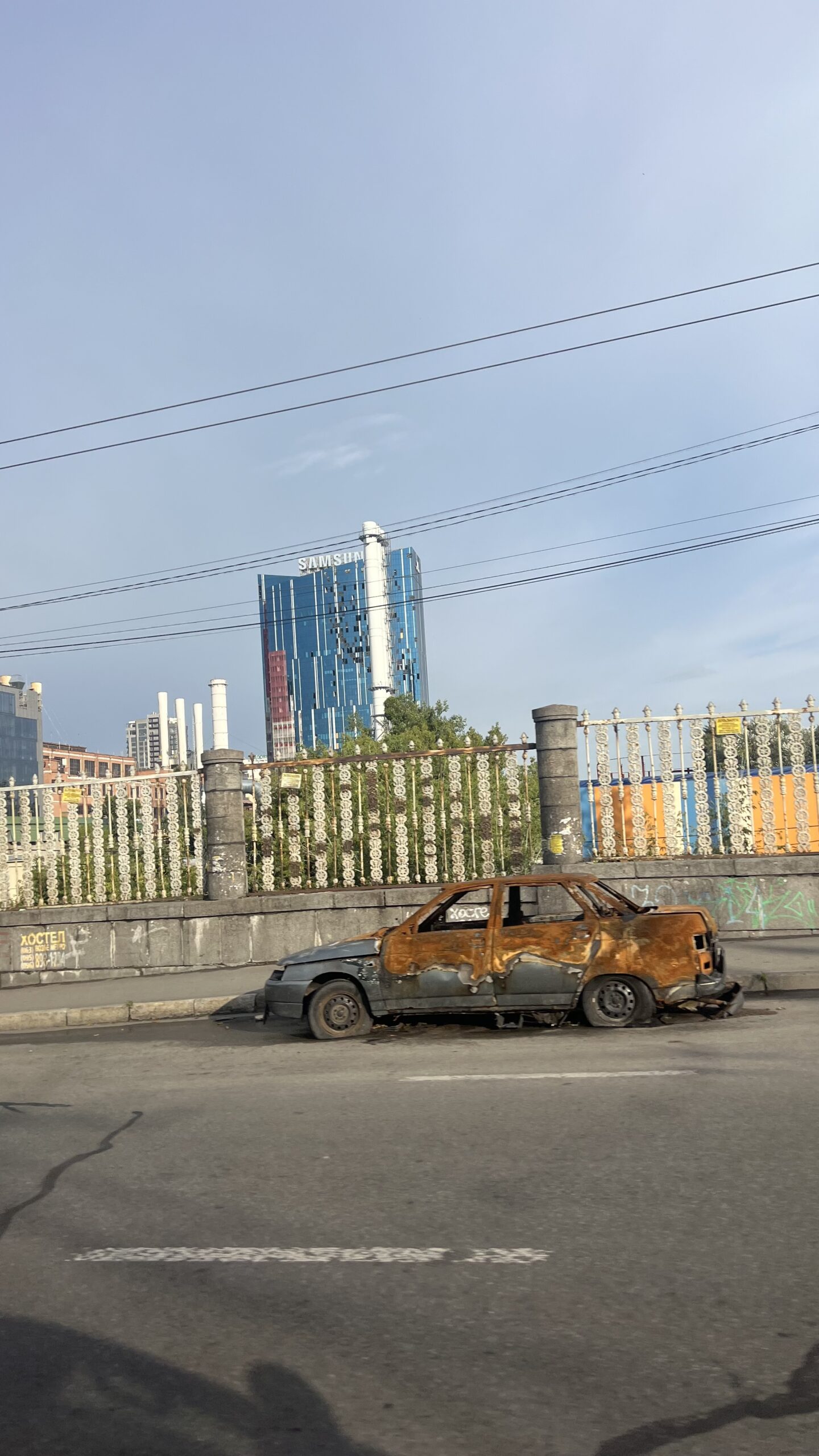
Photos taken by Mama Snake, DJ TOOL and EZY while walking around Kyiv
We are meeting our friends at a restaurant, and on our way there, the airstrike sirens go off—first on our phones, followed by the sirens of the city. As someone who has never been in an active war zone, I am not sure if we should seek shelter, so I look to those around us for a sign. Everyone follows Telegram channels where info about the airstrike from the front line will tell you what is coming, and this time it seems to be intercepted before reaching the Kyiv region.
If it weren’t for the ominous sound of the sirens, you wouldn’t know that we are in a country at war—no one around us seems to be in a rush to seek shelter. I guess after so long, you need to fight for a sense of normalcy.
15 minutes later, it’s over. We arrive at the restaurant and have dinner under the bluish light from battery-powered LED lights, as there is no power at this time in this area of Kyiv because of blackouts. The r*zzians attack the electricity infrastructure, and the situation is worsening every day.
We end the day at a bar, catching up with many friends, and I feel really grateful to be in one of my fave cities with these amazing people. Time passes quickly, and we hurry back to the hotel to make it back in time for the curfew.
• June 11th
Our friends from the electronic music scene in Kyiv work tirelessly to keep the scene running, and during our time here, there’s a project organized to create collaborative works by Ukrainian electronic music artists, instrumentalists, and vocalists. We go to the spot just on the outskirts of Kyiv to check it out and do an artist talk about keeping community at the core of artistic practice. It’s called Mirage Camp, and all the tracks will be released at the end of the stay.
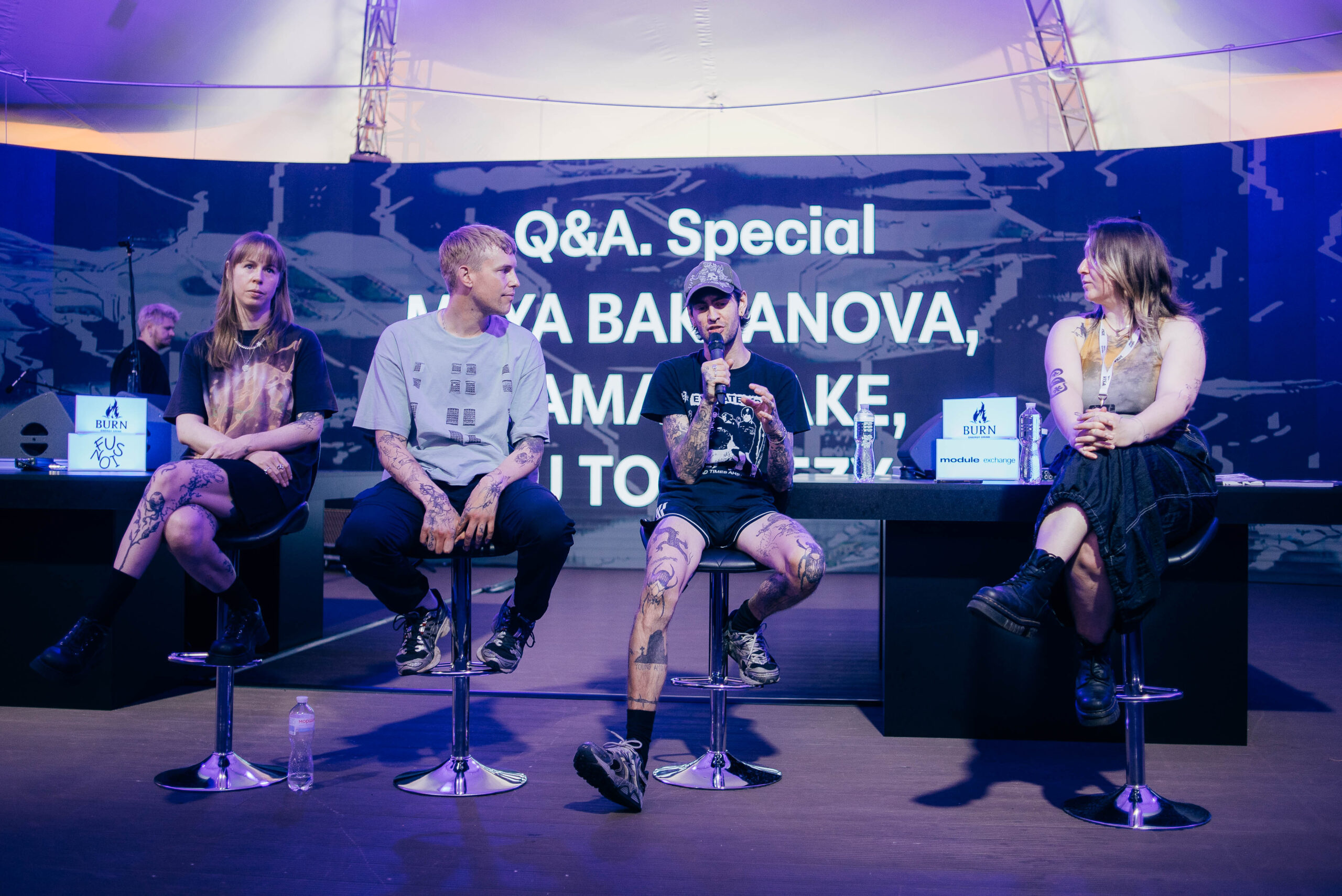
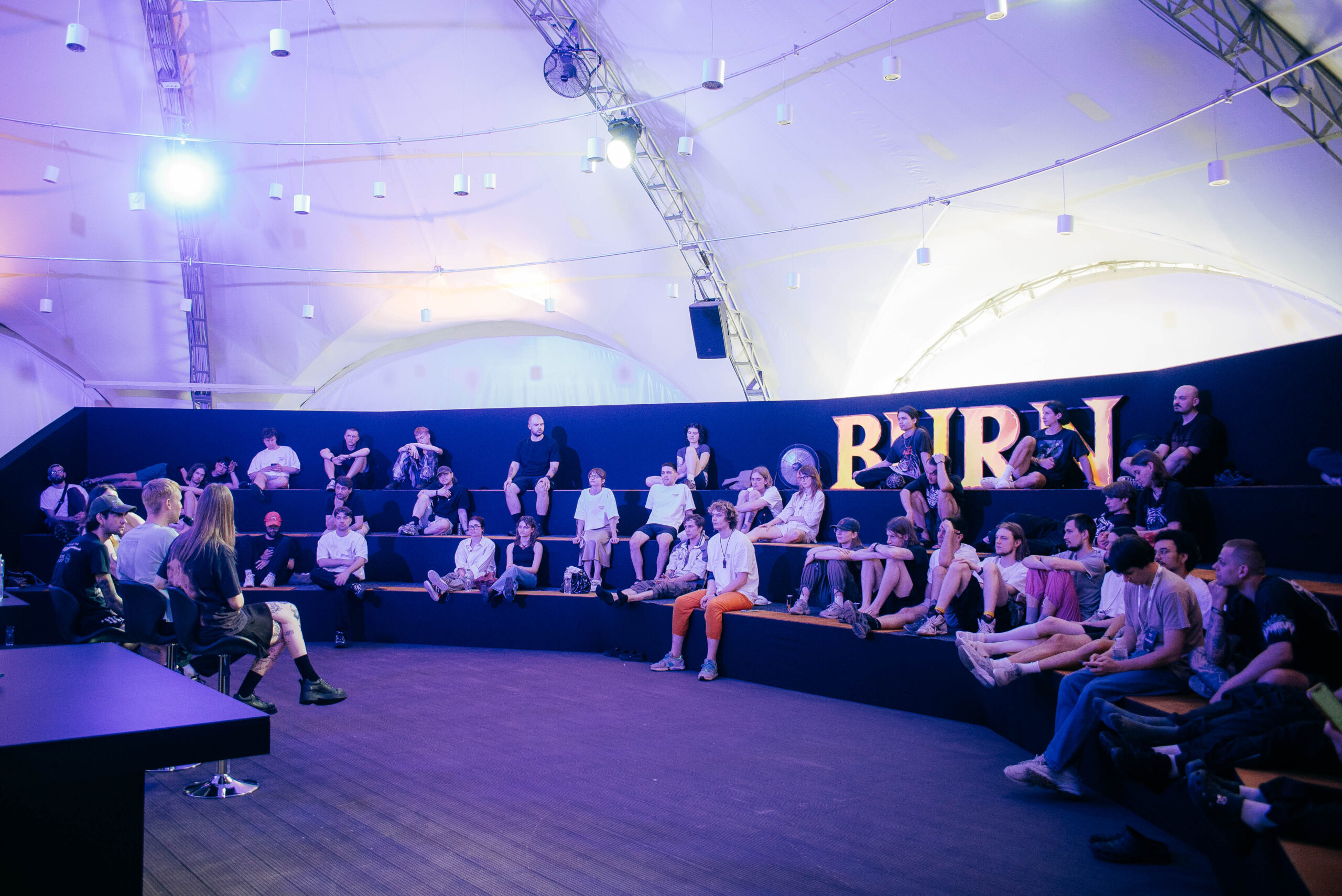
I am super impressed by the level of production at the camp—music studios built for the occasion, a proper stage for performing, and rooms for all the groups to work in. Lots of reflection on how creativity and creation are such an important part of your sense of identity and how important it becomes during wartime.
We head back to the city to visit a local brand called Piece of Shirt (big name) that does sick support merch before going to ABO Records—one of the cool record shops/venues/bars that have opened up during the invasion. We meet so many sweet people.
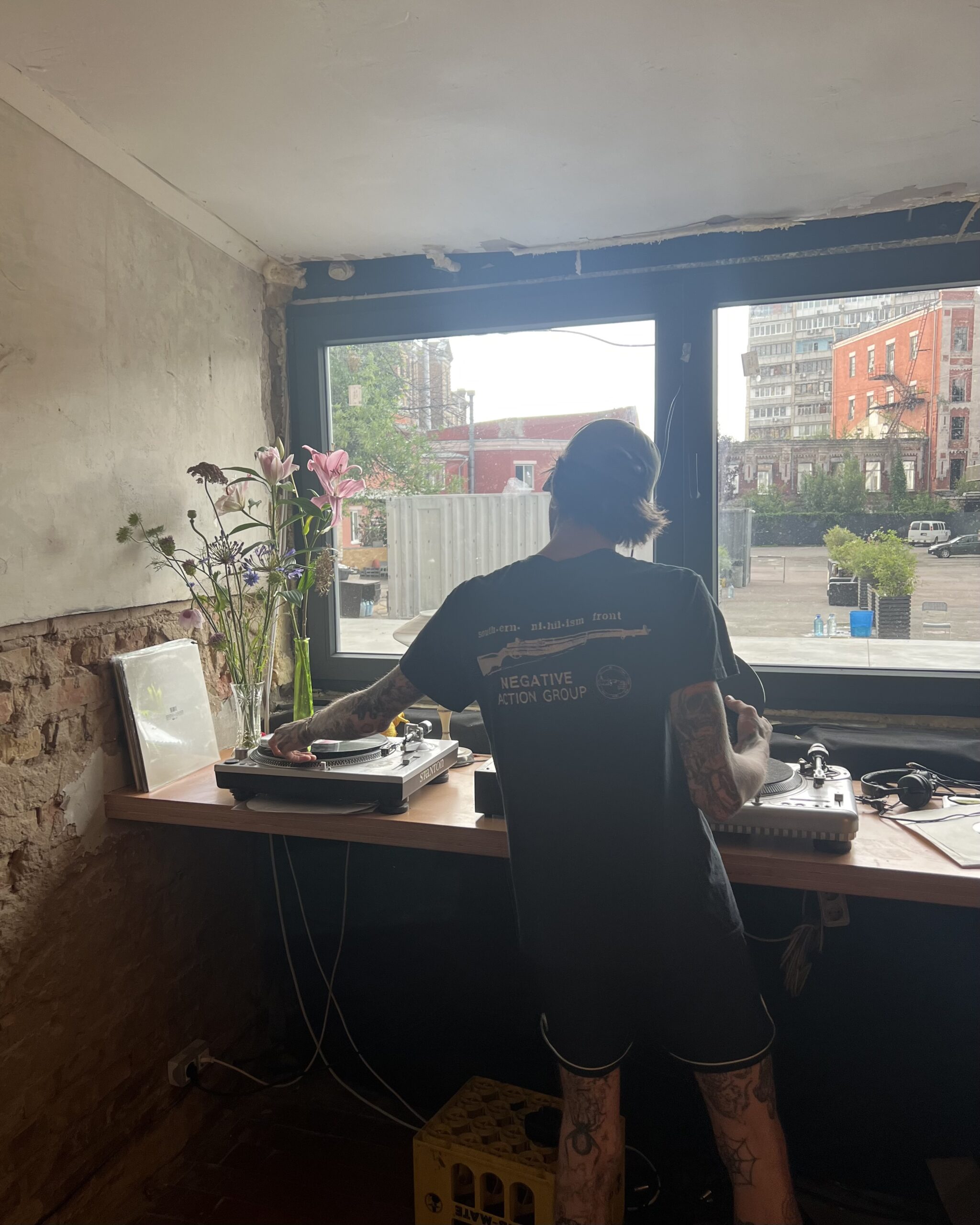
Finally, we went to a Ukrainian restaurant called “100 rokiv tomu vpered” that specializes in modern takes on classic Ukrainian dishes. Insanely good. The chef that runs the place did the research to prove that Borscht is Ukrainian and cemented its origin. Very important work as the colonial, genocidal regime of r*zzia has tried to claim the dish as theirs.
Four weeks later, we hear the news that the largest children’s hospital in Ukraine that we passed by on the way to dinner, only a few hundred meters away, was bombed, killing children and medical staff.
We say goodbye to our friends as this is our last evening in Kyiv and walk back through the beautiful city and its whirly streets. We make it back to our hotel before the summer rain and thunder start. As it is the law every day in Ukraine, we have to be back before the curfew.
At 3:30, I’m woken up by the airstrike alarm on my phone. I’m sleeping with the window open, and I hear heavy rain and thunder outside and am considering whether to go to the shelter or not. I decide to wait and try to rest a bit but can’t fall back asleep because of the sirens and loud weather outside. I don’t know how much time passes, but on the app of airstrike alerts, I check the map of Ukraine to see the level of danger. The entire map is dark red, which is the highest level. Even the most western regions are on high alert. The thunderstorm has stopped, and a new sound is introduced. It’s louder and quite different from the sound of thunder. It’s undoubtedly the sound of explosions.
I see my friend Maya has written to me, saying this attack is the heaviest the city has experienced in a few weeks and advises us to take shelter. I write to the others, and we meet in the underground shelter of the hotel, which we are lucky to have. Most Ukrainians will have to either hide behind at least two walls and hope for the best or leave their home to find the nearest shelter, which might not be close by. After a while, the siren stops; all attacks have been intercepted. We go back to our rooms. It takes me a while to fall asleep again, and a few hours later, another airstrike alarm starts. Finally, at 8 in the morning, it seems to be over, and I pass out.
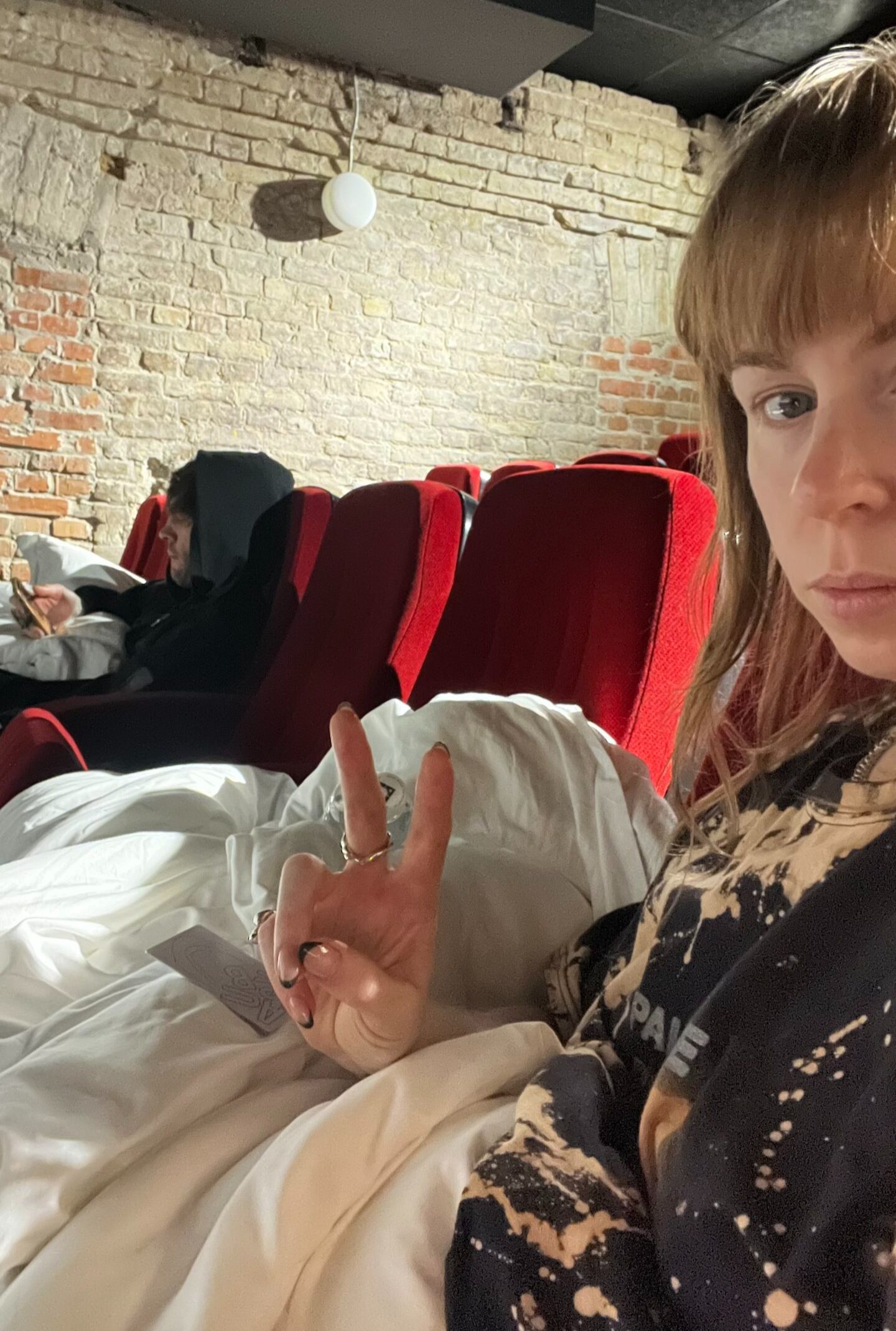
• June 12th
After 2 hours of sleep, we get picked up by Nikita, a lawyer/journalist who served as a local guide to the international media when they were reporting from Ukraine in the first months after February 24th. He is going to drive us to the villages close to Kyiv that the rzzian terrorists occupied in the early days of the full-scale invasion before being pushed back and defeated by the Ukrainian army.
It’s only a very short drive from the center of Kyiv, scarily close. On the highway driving out of the city, we see lots of blockades and trenches in the pine woods. It’s quite a chilling sight; I’ve only seen something similar in movies.
We drive through the city of Bucha, a name I remember clearly because of the images that traveled the world of the tortured bodies of the residents left inhumanely behind by the genocidal rzzian soldiers. We see remnants of the occupation, but life goes on, and people still live there. Then we arrive at Borodyanka, another village occupied and severely bombed by the r*zzians. Homes are destroyed everywhere. Huge cemeteries are filled with new graves—sights I will never forget.
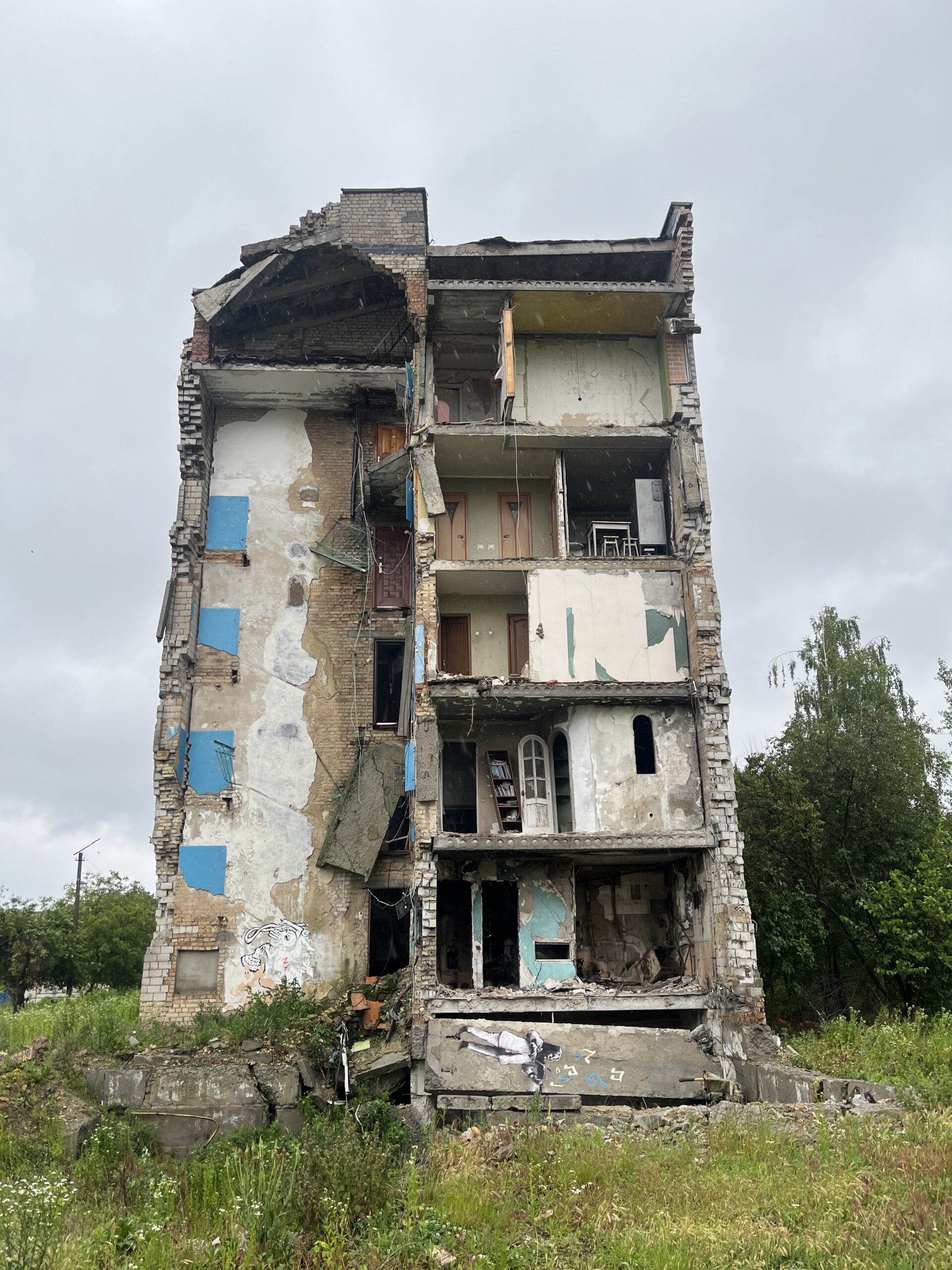
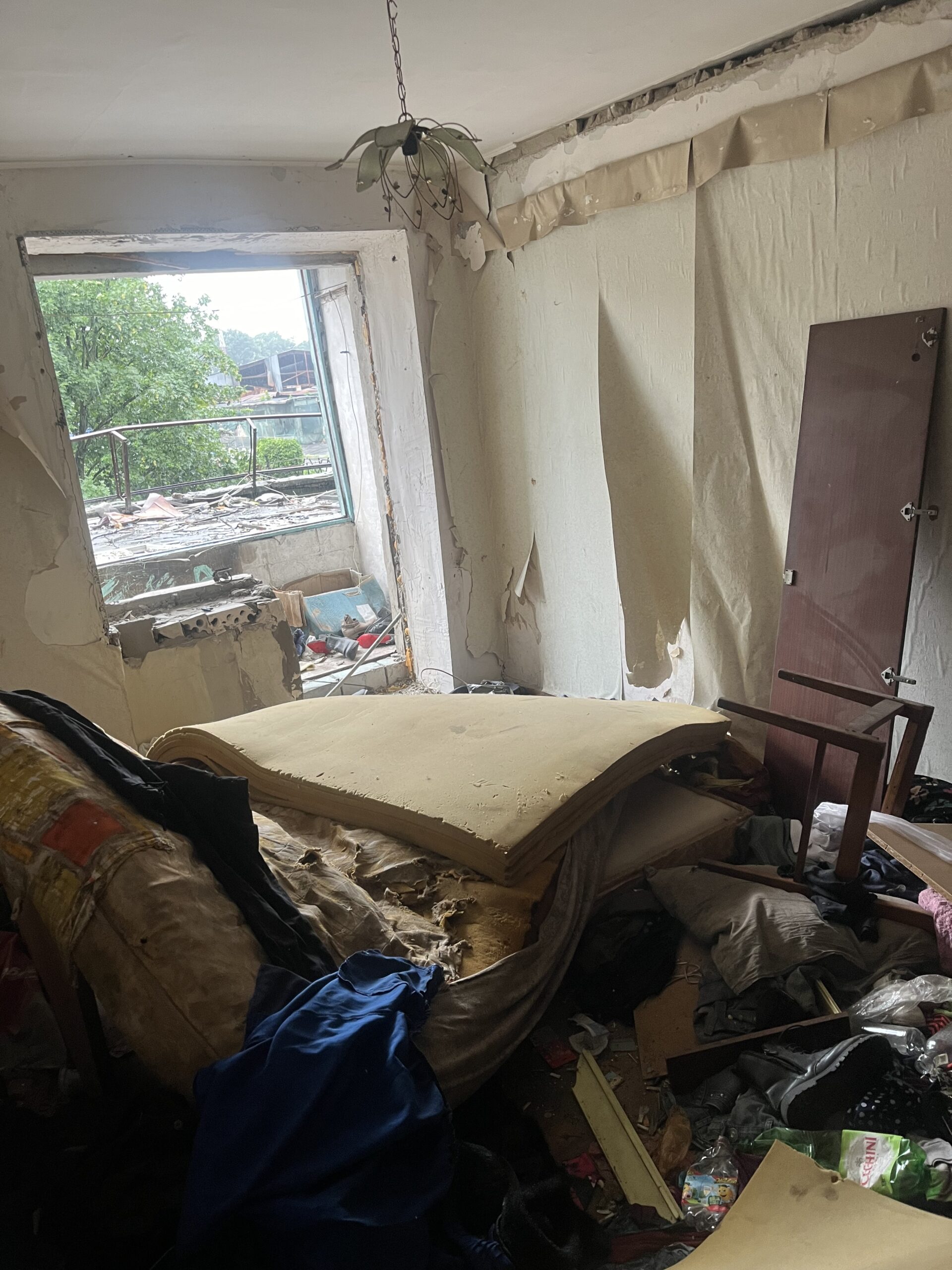
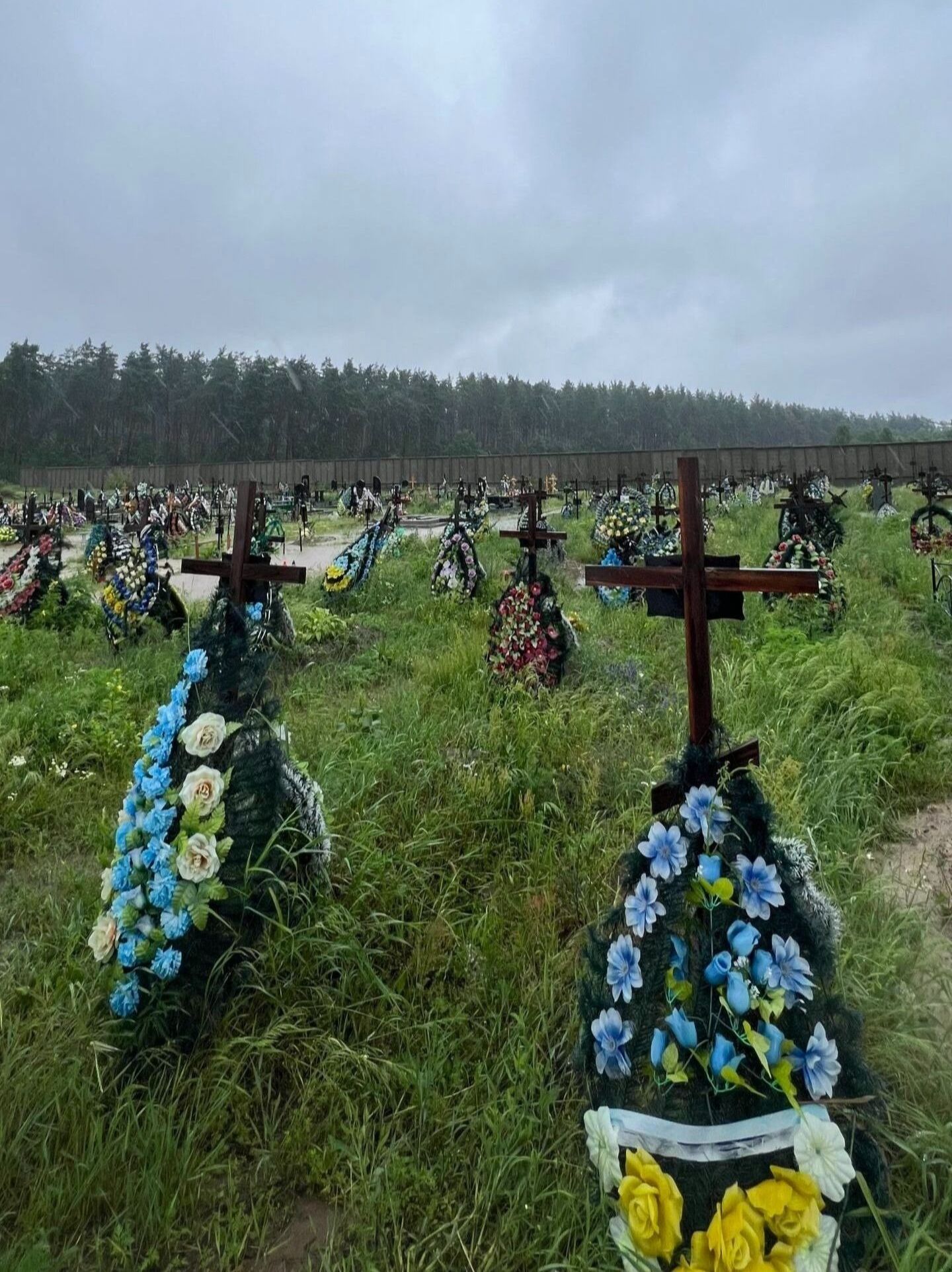
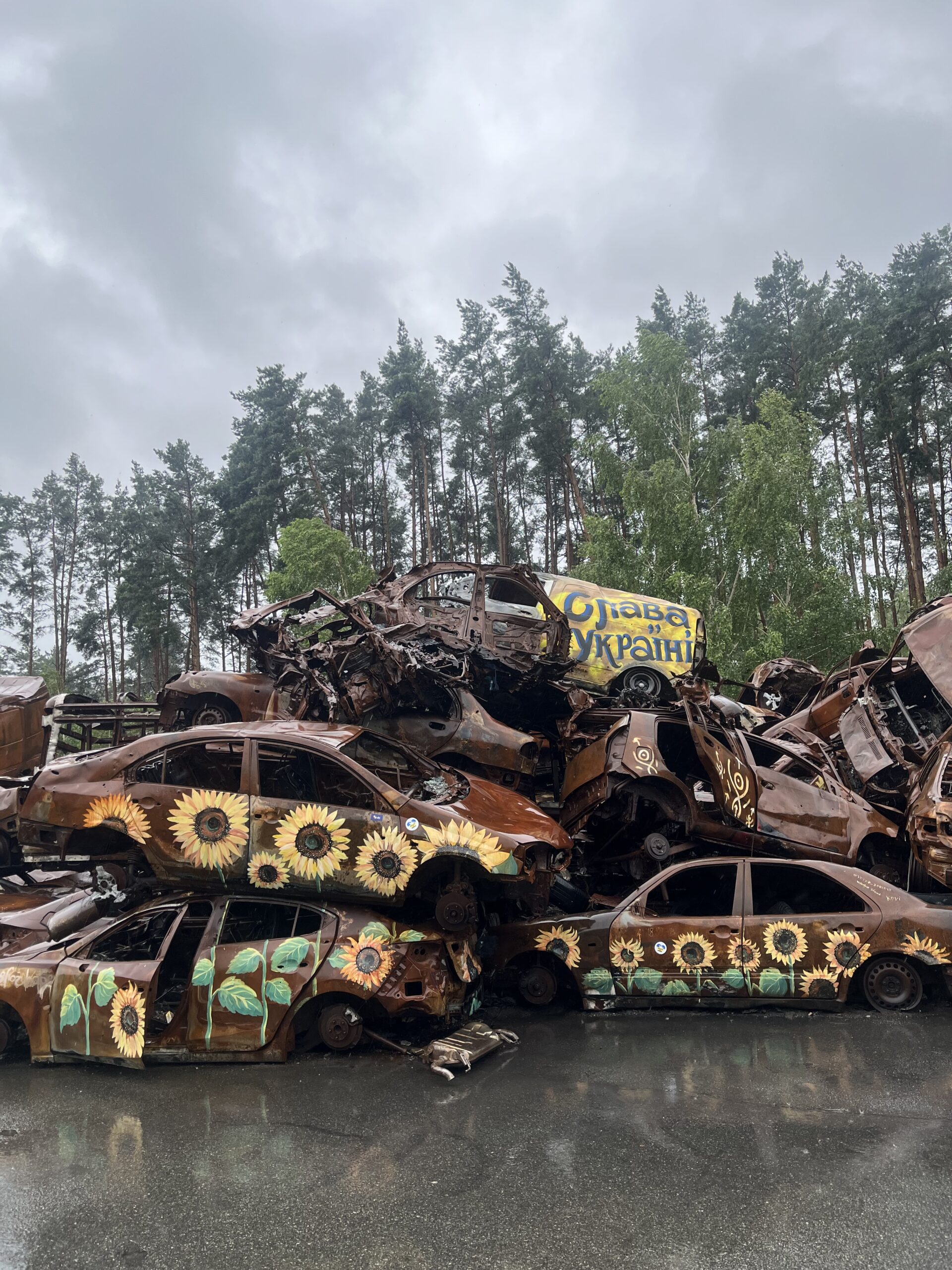
Photos taken by Mama Snake, DJ TOOL and EZY during the visit to Bucha and Borodianka (Kyiv region)
Mykyta drives us back to Kyiv, and we have food before going to the train station to embark on the long journey back to Warsaw.
It feels bittersweet to be leaving Kyiv; it’s been humbling and heartwarming to be back in Ukraine, catching up with friends and making new ones, and I want to stay longer, but of course, it’s also a hectic existence living with the constant threat of airstrikes and so much loss and grief and frustration with the western world not providing sufficient support to end the war.
Our friends drive us to the train station, one final look at the massive skyscraper with bomb holes right in front of the station before we say our goodbyes. Sunset over the farm fields, woods, and trenches outside the window as we leave Ukraine. Already looking forward to our next visit.
